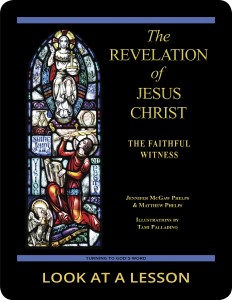death
 The eighth chapter of the Letter to the Romans (NABRE) deals extensively with themes of death, sin, and God’s spirit. These are interesting and essential concepts supporting our Christian theology of salvation, and having a clearer concept of their Greek meaning may help in understanding their interrelationship.
The eighth chapter of the Letter to the Romans (NABRE) deals extensively with themes of death, sin, and God’s spirit. These are interesting and essential concepts supporting our Christian theology of salvation, and having a clearer concept of their Greek meaning may help in understanding their interrelationship.
Let’s begin with the concept of death. In the Letter to the Romans 8:13 (NABRE), Paul uses the Greek word νεκρός (nekros) to describe death. This is the root of the English word “necrotic” used to refer to a corpse or dead tissue. By contrast, there’s another Greek word for death used in the Gospel According to John, θάνατος (thanatos), a word that much more generally and abstractly means death.
It’s significant that Paul uses the word signifying a corpse to mean death in his writing, and it suggests his view of how Christians are brought to life. In the ancient world as today, a corpse was simply a body that the life or spirit had left. The image Paul is using to describe Christ living in us is that through our sin we can become in a sense living corpses. When God’s spirit is within us, we are reanimated as people living in Christ—or more accurately as people with Christ living in us.
Does this view of salvation change your conception of your relationship with Christ or your purpose as a Christian? What can you do to cultivate Christ’s life within you?
related topic: spirit
you also may like our study of the book of Revelation
 The Revelation of Jesus Christ: The Faithful Witness, a 23-lesson Catholic Bible study with an imprimatur, examines ways in which our traditional Christian view of heaven is built on Hebrew apocalyptic visions recorded in the Old Testament. This recently revised study includes maps and additional commentary and takes a close look at the role of the prophets in present-day Christianity. Illustrations by Tami Palladino depict the often-misunderstood images in the book of Revelation. Click on the book’s cover to view a sample lesson.
The Revelation of Jesus Christ: The Faithful Witness, a 23-lesson Catholic Bible study with an imprimatur, examines ways in which our traditional Christian view of heaven is built on Hebrew apocalyptic visions recorded in the Old Testament. This recently revised study includes maps and additional commentary and takes a close look at the role of the prophets in present-day Christianity. Illustrations by Tami Palladino depict the often-misunderstood images in the book of Revelation. Click on the book’s cover to view a sample lesson.
 Click on the picture of the statue of Moses with horns (above) to learn more about Lost in Translation. A new entry is archived each Monday. Contact us to receive Lost in Translation by email every week. You may use any of the contact links on our website to ask Matthew a question.
Click on the picture of the statue of Moses with horns (above) to learn more about Lost in Translation. A new entry is archived each Monday. Contact us to receive Lost in Translation by email every week. You may use any of the contact links on our website to ask Matthew a question.
